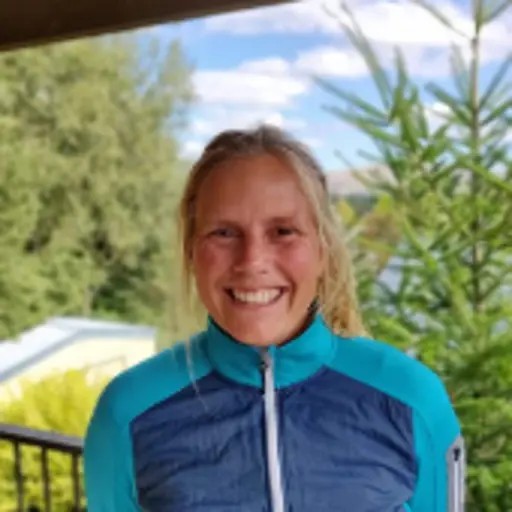
In June, the third edition of the UNOC (United Nations Ocean Conference) took place, this time in Nice, France. The overarching theme of the conference was “Accelerating action and mobilizing all actors to conserve and sustainably use the ocean.” Chalmers was represented by Anna Lunde Hermansson and Ida-Maja Hassellöv. Here, Anna Lunde Hermansson shares a short report on her experience at the conference and her key takeaways.
Overall, how did you experience the UNOC?
“I was quite overwhelmed by it all. You find yourself surrounded by world leaders, politicians, royalty, industry representatives, NGOs, researchers, youth and passionate advocates – all speaking about how we must protect the ocean and its resources. And all of this takes place in extreme heat, amidst thousands of police officers and tight security.”
What made the strongest impression on you?
“I felt deeply humbled by how difficult it is to bring all nations together and agree on the future of our oceans. At the same time, I believe it’s more important than ever to find a sense of community and a forum where everyone’s voice can be heard. I especially appreciated the events outside the so-called ‘blue zone’, where the public was welcome to participate.”
Did any of the discussions or agenda topics directly relate to your own research?
“Yes, we co-organized a seminar outside the blue zone that was directly linked to my research on the environmental impact of shipping and the regulation of scrubbers. It turned out very well, with many inspiring presentations and strong statements. Beyond that, we felt that the issue of shipping’s environmental impact was relatively underrepresented at the conference – although, according to some sources, it was more visible than at UNOC2 in Lisbon, so perhaps things are moving in the right direction. During the week, we also took the opportunity to showcase an interactive platform we’ve developed in an ongoing collaboration between Chalmers Ocean and InfraVis, aimed at spreading knowledge on the environmental impacts of shipping.”
How did you perceive the balance between science, politics, and concrete action? Did research seem to have an impact?
“From what I saw, the events within the blue zone were generally more political, although there were frequent calls for decisions to be grounded in science. The week before UNOC, the scientific conference One Ocean Science Congress, OOS2025, was held, also in Nice. There, researchers outlined challenges and recommended actions that were forwarded to the policymakers attending UNOC3. I believe there needs to be stronger demands for concrete action and accountability, with proper follow-up to ensure that promises are fulfilled. That’s essential if UNOC and similar global meetings are to have the status they deserve.”
What will you bring back – to your work, your colleagues, and future projects?
“That there is so much more to do, and so many exciting research areas to explore. As researchers, we can truly play a central role in generating knowledge and informing both policymakers and the wider public – and I think we should seize that opportunity.”
How do you view the pace and ambition of international efforts? Do you think we’re moving in the right direction?
“I always think things move too slowly! But as long as marine issues gain more attention, and the spotlight is placed on what needs to improve and the responsibility we all share, I see that as a positive sign. I also find hope in the fact that so many still believe in multilateralism and cooperation.”
What do you think is most urgent now to ensure that the discussions in Nice lead to real change?
“Broadly speaking, we need political courage, spurred by public pressure. We also need international trust and a shared sense of responsibility for protecting marine environments – even though I realize that might sound a bit utopian. More concretely, UN member states can ratify the High Seas Treaty (BBNJ – Biodiversity Beyond National Jurisdiction), apply the precautionary principle by halting all deep-sea mining activity – not only in international waters – and take national action, for example by banning the discharge of scrubber water, as Sweden will do starting July 1, 2025. Funding independent research and supporting vulnerable communities are also crucial aspects that were raised several times during the week in Nice.”
Anything you’d like to add?
“After an intense week in Nice, it’s clear there’s a great need and urgency for both marine and maritime research. I’d like to take this opportunity to highlight the collaboration within Chalmers Ocean as an important enabler for continued work on ocean-related issues – both locally and globally.”
Read more
- "UN ocean summit in Nice closes with wave of commitments", UN News (Opens in new tab)
- "Wallenius pushes for a global scrubber ban at the UN Ocean Conferense in Nice", Walleniuslines.com (Opens in new tab)
- ""The government bans discharges from scrubbers in Swedish waters", www.regeringen.se (in Swedish) (Opens in new tab)
- "Ministers meet in Vigo to take concrete measures to enhance protection of the North-East Atlantic Ocean", Ospar.org (Opens in new tab)
- Doctor, Transport, Energy and Environment, Mechanics and Maritime Sciences
